On May 16, 2025, the international conference themed "Shared Future: Building an Open and Inclusive Economic and Financial System," organized by the Tsinghua University PBC School of Finance (PBCSF), and the 2025 Tsinghua PBCSF Global Finance Forum, officially opened in Shenzhen. During the Session VIII held on May 18, "Technological Innovation Empowered by Finance" became the core topic. This session aimed to address the current challenges and realities of technology finance, build consensus among stakeholders, and explore how finance can better empower technological innovation and development.
Key speakers included Huang Qifan, Academic Advisor of the China Finance 40 Forum and former Mayor of Chongqing; Ma Weihua, Chairman of the National fund for Techology Transfer and Commercialization; Ni Zewang, former Chairman of Shenzhen Capital Group Co., Ltd.; Duncan Chiu, HKSAR Legislative Council Member (Technology and Innovation); Guo Jian, Executive President of International Digital Economy Academy (IDEA); and Ellen Jia,General Manager of Digital Banking, OneConnect Financial Technology (OCFT) and Chief Secretary of Internet Finance Association of Small and Medium-sized Banks (IFAB).
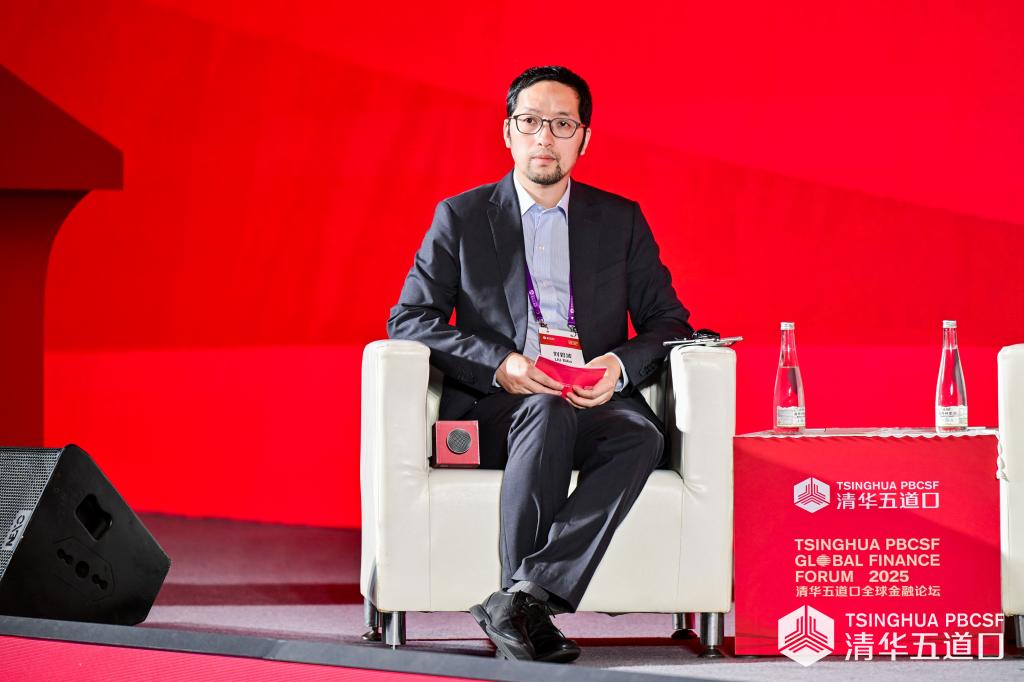
Photo: Liu Bibo Chairing the Meeting
The forum was hosted by Liu Bibo, Assistant Dean and Associate Professor of Tsinghua University PBCSF.
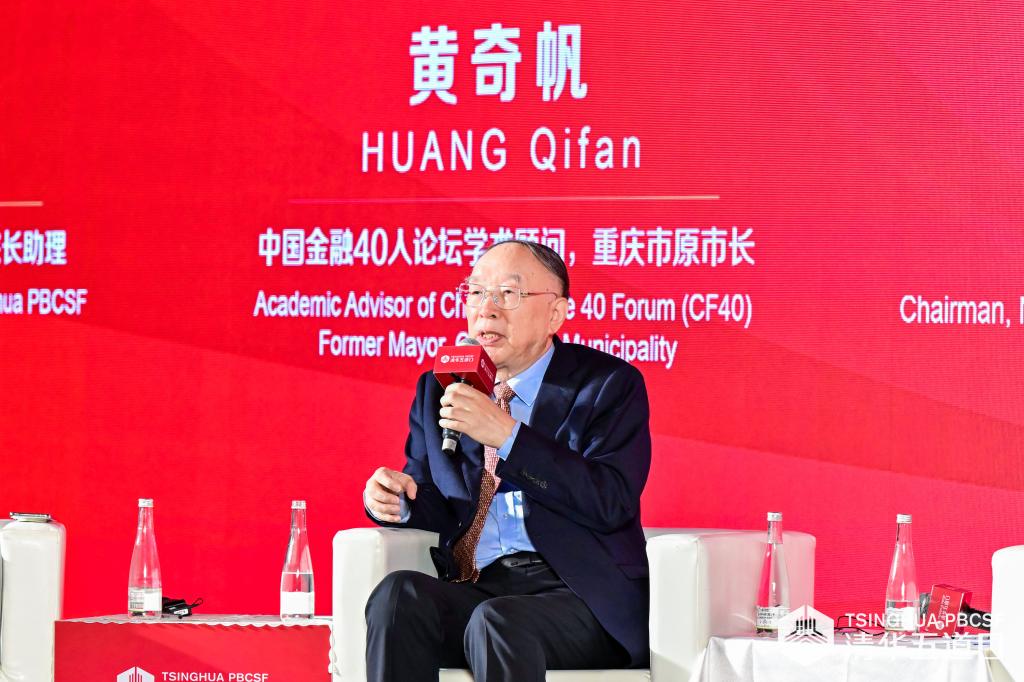
Huang Qifan Speaking
Huang Qifan, former Mayor of Chongqing and Academic Advisor to the China Finance 40 Forum, stated that financial technology has evolved from electronic finance 1.0 and internet finance 2.0 to the current industrial internet finance 3.0 stage, with its applications in industries continuing to deepen.
He emphasized that financial technology based on the industrial internet is key to solving the financing challenges of small and medium-sized enterprises (SMEs). The "1+10" industrial chain cluster, which includes manufacturing and ten related production service industries, can be integrated into a comprehensive digital platform using technologies such as big data, cloud computing, and artificial intelligence.
Huang highlighted that the industrial internet not only promotes the development of new productive forces but also effectively addresses SMEs' financing difficulties and serves as the core infrastructure of financial technology.
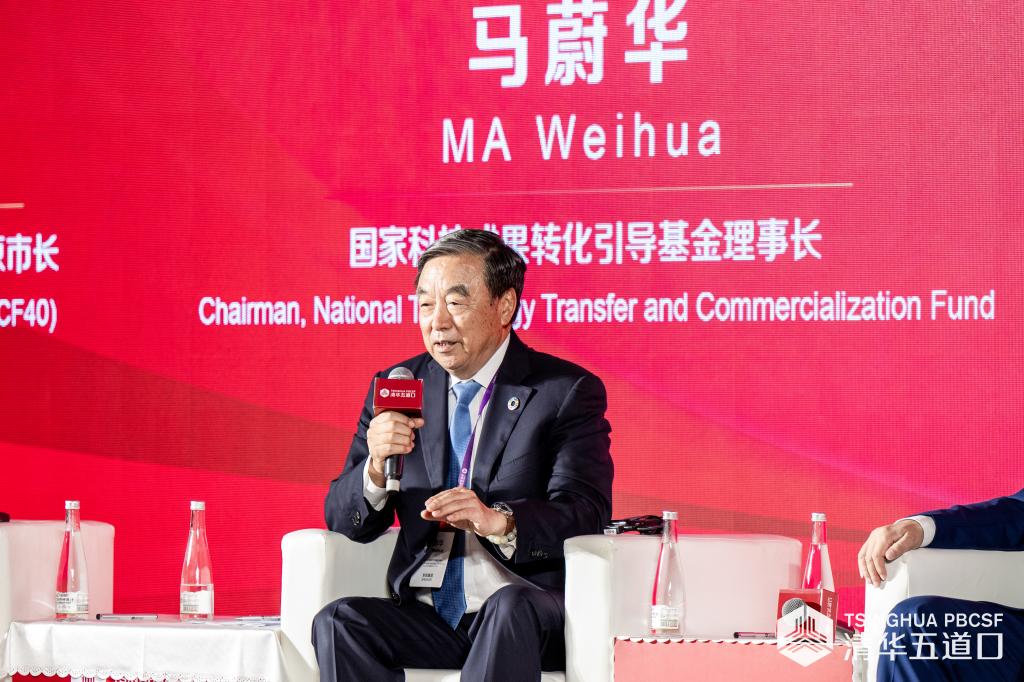
Photo: Ma Weihua Speaking
Ma Weihua, Chairman of the National fund for Techology Transfer and Commercialization, pointed out that China's current conversion rate of scientific and technological achievements is about 35%, still lagging behind developed countries.
He identified key issues, including the disconnection between innovation and funding chains, valuation biases favoring commercial over technical value, policy misalignment emphasizing patent quantity over conversion rates, and the lack of fault-tolerance mechanisms for early-stage investments.
Ma emphasized that government guidance funds should take the lead in coordinating financial resources, mobilizing social capital for technology enterprises, and establishing risk management mechanisms to address these challenges.
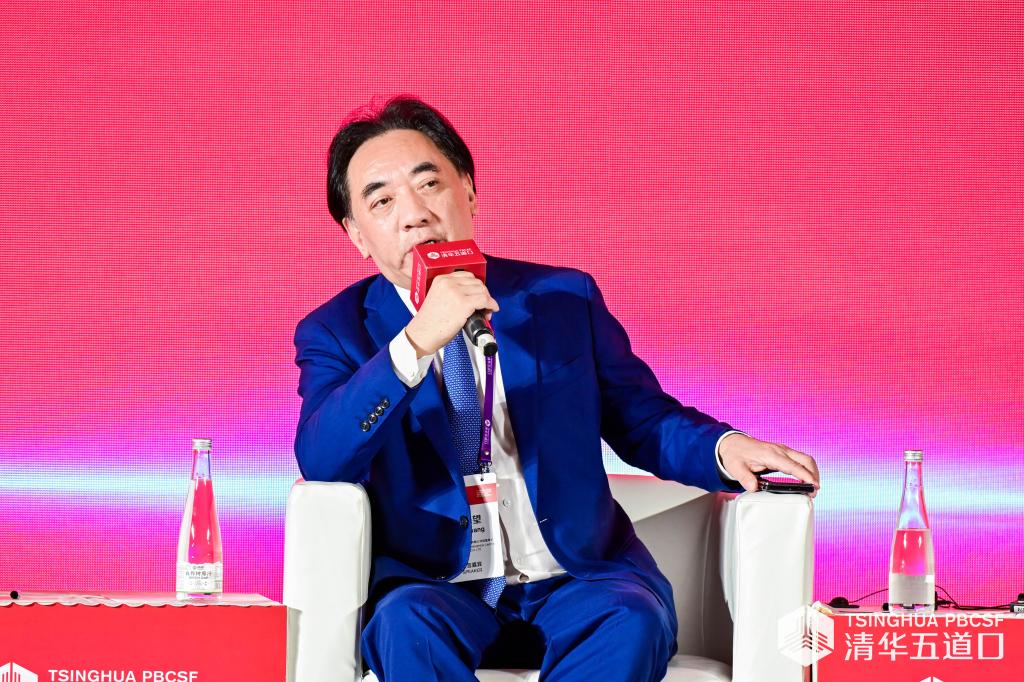
Ni Zewang Speaking
Ni Zewang, former Chairman of Shenzhen Capital Group Co., Ltd., analyzed how innovative investment models can help startup technology enterprises overcome the "Valley of Death" and transition from laboratory research to industrial application. He pointed out that the venture capital industry faces unprecedented changes, including stronger national emphasis, difficulties in fundraising and exits due to tightened IPO channels, and new opportunities in artificial intelligence and semiconductor investments. Despite these opportunities, the industry struggles with profitability, as most funds established since 2015 have a DPI below 0.5. Ni suggested measures such as reducing tax burdens, encouraging long-term capital like social security and insurance funds to enter the industry, and providing more flexibility in the assessment and accountability of state-owned funds to attract long-term investments.
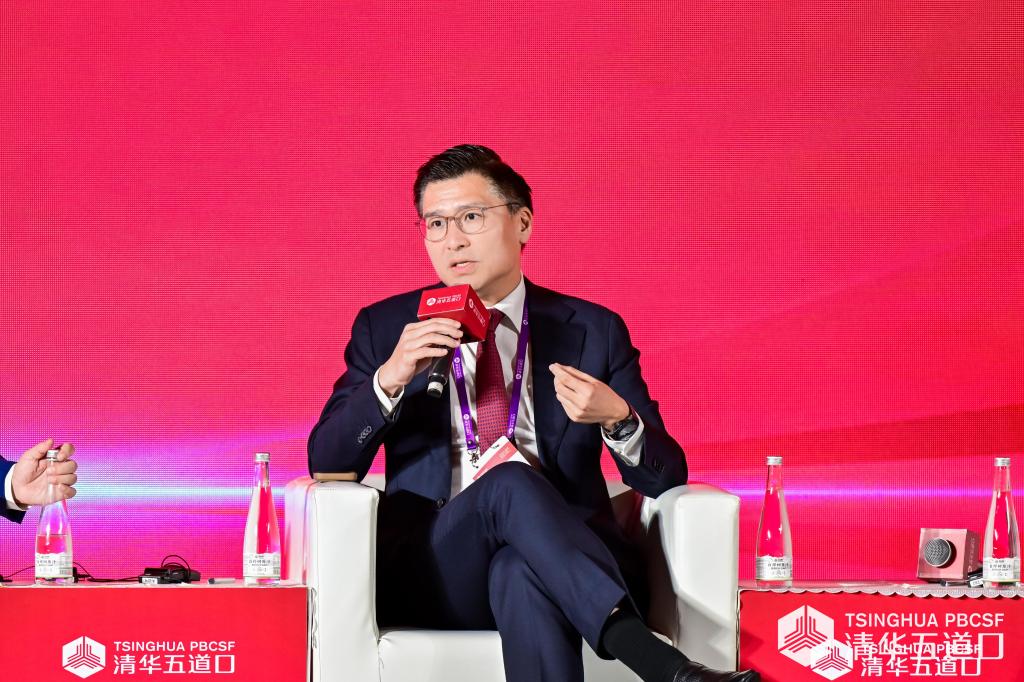
Duncan Chiu Speaking
Duncan Chiu, Legislative Council Member of Hong Kong (Technology and Innovation Constituency), highlighted Hong Kong's efforts in upstream R&D, talent attraction, and institutional innovation to support technology finance. The government invested HK$10 billion to commercialize university research, introduced policies to attract top tech talents, and promoted fintech reforms, including Web3, digital assets, and the Stablecoin Bill, to enhance financial system innovation and help tech companies lead in global competition.
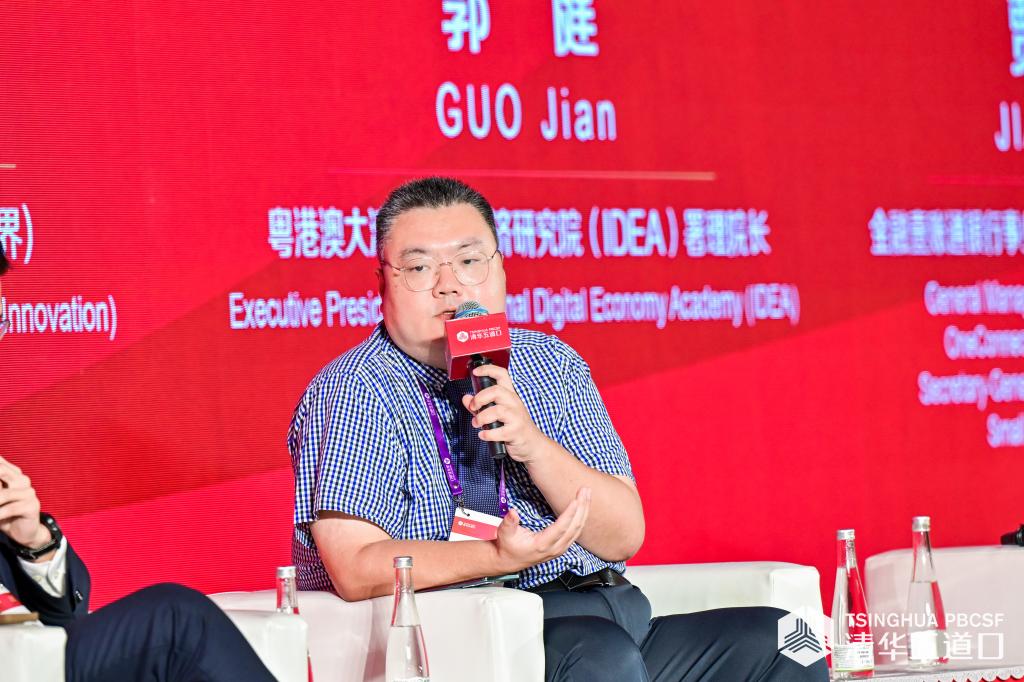
Guo Jian Speaking
Dr. Guo Jian, Executive President of International Digital Economy Academy (IDEA), discussed the challenges of deep cooperation between financial institutions and tech enterprises. He noted that China is shifting from catch-up to leading-edge R&D in many fields, with pioneering innovation requiring long-term, patient capital due to its high difficulty, long cycles, and uncertainty. He emphasized using technologies like AI, synthetic data, and digital twins to enhance financial institutions' risk control capabilities and to innovate investment and financing models, guiding more quality capital to support startup tech companies.
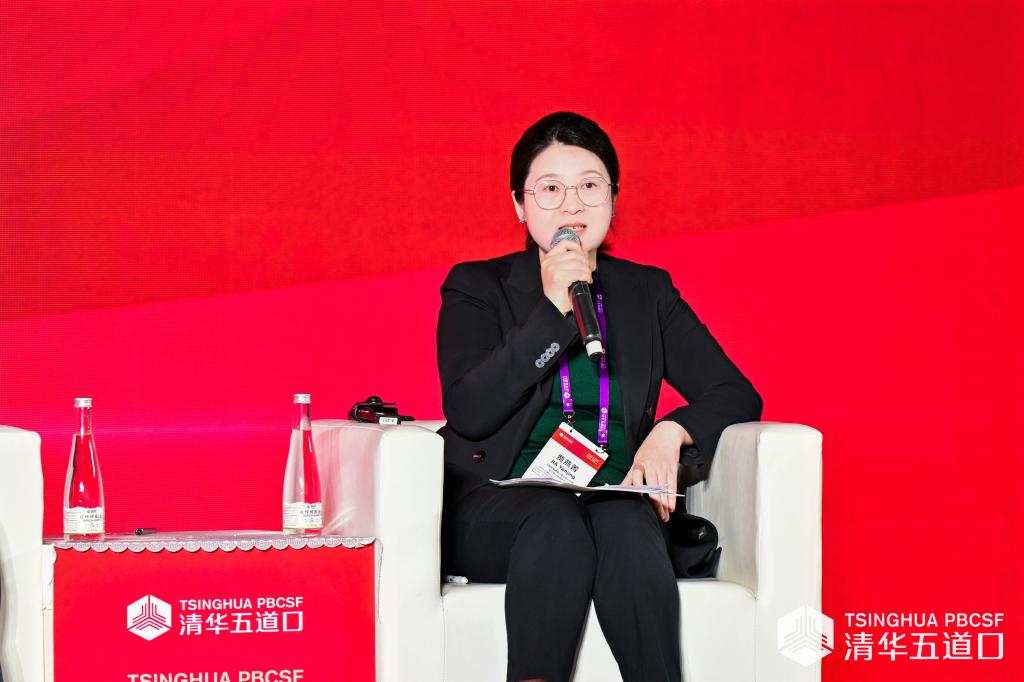
Ellen Jia Speaking
Ellen Jia,General Manager of Digital Banking, OneConnect Financial Technology (OCFT) and Chief Secretary of Internet Finance Association of Small and Medium-sized Banks (IFAB), highlighted the financing challenges of China's small and medium-sized tech enterprises, caused by lagging risk management mechanisms. She identified key pain points: fear of risks, R&D uncertainty, and incomplete credit systems. Jia proposed a three-pronged strategy: deploying intelligent infrastructure (e.g., IoT, AI, blockchain), reconstructing the value of data assets to aid risk management, and leveraging patents and intellectual property to address valuation difficulties for asset-light tech enterprises.
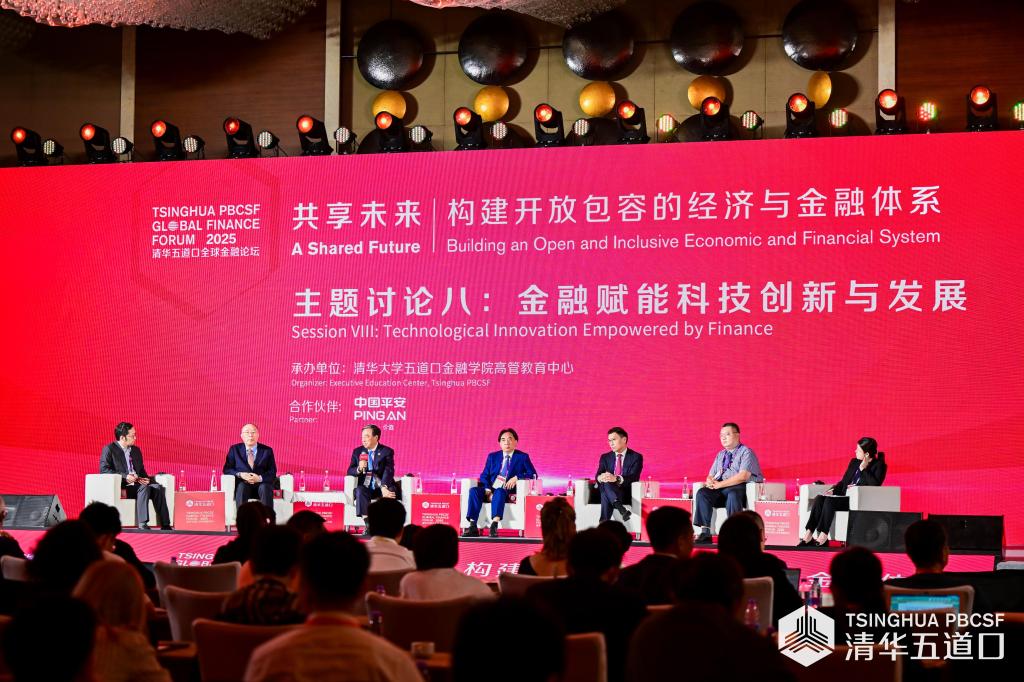
Photo: Panel Discussion
Finally, the participating guests engaged in an in-depth discussion on the topic of "How to Build a More Effective Financial Support System for Technology Innovation." The consensus was to combine institutional innovation, technology application, and regional collaboration to create a risk-controllable and benefit-sharing technology finance ecosystem.
The Tsinghua PBCSF Global Finance Forum is a series of events initiated by Tsinghua University in 2014. It aims to focus on new ideas, trends, practices, and drivers of global financial development, providing insights and recommendations to achieve high-quality financial development and contribute to building a strong financial nation. After 11 years of development, the forum has become an influential academic exchange platform in China with a high international reputation.
Source丨 Forum Working Group of Executive Education Center
Text | Jing Bo, Zhu Yashu
Review | Liu Bibo, Xiong Zizhan